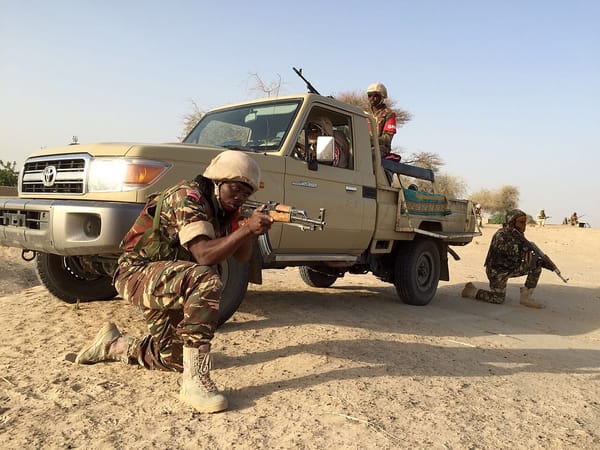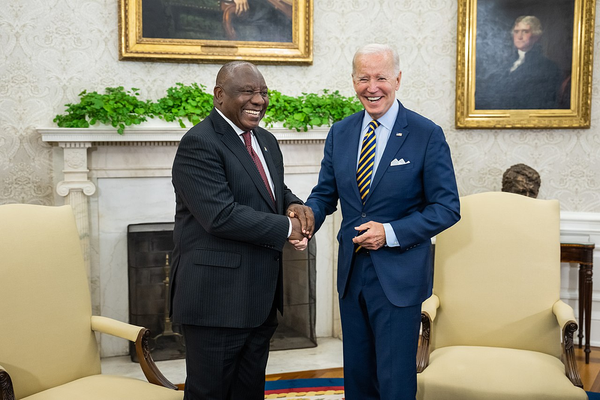Must-See Film: Jagun Jagun (The Warrior)
Jagun Jagun immerses its audience in the captivating realm of ancient Yoruba warriors through its stunning costume design and remarkable visual storytelling.
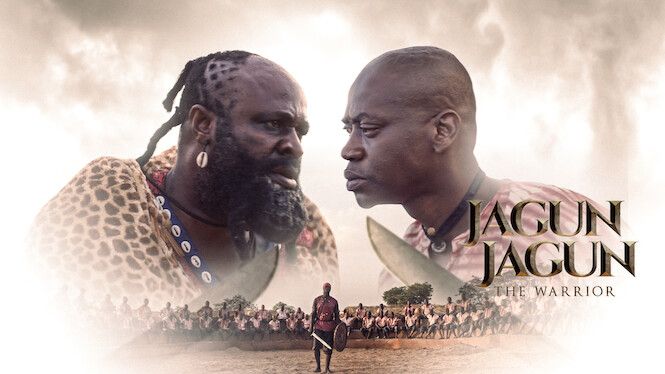
Cast: Femi Adebayo,Lateef Adedimeji,Odunlade Adekola, Bukunmi Oluwashina
Director(s): Tope Adebayo, Adebayo Salami
Producer(s): Femi Adebayo, Euphoria360Media
Time: 2h 14m
Jagun Jagun immerses its audience in the captivating realm of ancient Yoruba warriors through its stunning costume design and remarkable visual storytelling. The film's cinematography enchants with its captivating landscapes, intricate costumes, and breathtaking battle sequences.
The cast's performances are riveting, with Femi Adebayo's portrayal of the menacing Ogundiji standing out as a particularly memorable highlight. Adebayo injects profound depth into his character, rendering an authentic and maniacal portrayal.
Lateef Adedimeji's portrayal of Gbotija is top-notch acting. He delivered the character in a convincing fashion emanating strength and resolute determination. Bukunmi Oluwashina's portrayal of Gbotija's love interest, Iroyinogunkiitan, is equally commendable. The undeniable chemistry between Gbotija and Iroyinogunkiitan adds further layers of engagement to the narrative.
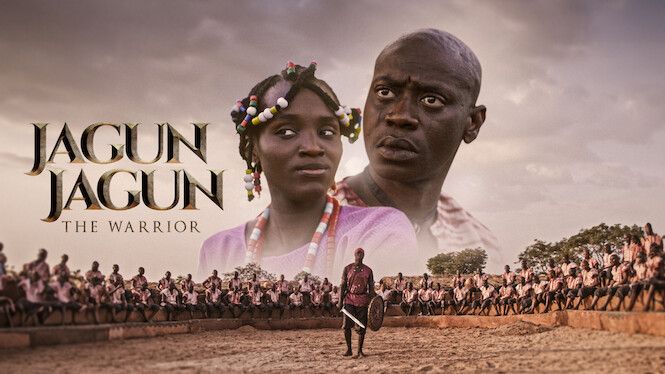
Gbotija's transformation from a young man into a formidable warrior and inspirational leader is a heartwarming journey. The film delves into intricate themes of ambition, betrayal, and retribution, each intricately woven into the narrative's fabric to deepen its resonance.
I do have some criticism of the film. Jagun Jagun's world-building efforts fall short, leaving much to be desired. The film often features fleeting glimpses of different Kingdoms and towns, labeled with title cards, implying significance that never materializes in the storyline. These realms remain unexplored and inconsequential, failing to contribute to the narrative.
Additionally, the film lacks a coherent temporal context beyond superficial aesthetics, leaving viewers guessing about the era in which the story is set. Inconsistencies like the presence of modern corrugated roofing sheets on traditional huts further muddle the timeline.
The movie also falters in tying up its secondary plotlines, exemplified by the unresolved conflict involving a recruit's altercation with one of Ogundiji's men in the beginning. Such instances of contrived scenes are scattered throughout the film, resulting in a disjointed narrative.
My disappointment extends to the visual effects (VFX) which exhibit a lack of refinement. A scene depicting Gbotija's use of magic to lift a fallen tree showcases subpar special effects, a shortcoming that modern nonlinear video editing technology should have rectified.
Delving into the film's magic system, despite the meticulous attention paid to costume design, the establishment of a coherent magical framework remains absent, barring the Agbemo character's abilities. Historically, cowrie shells held economic value, serving as legal tender and symbols of wealth rather than war, power, or charm. Its use in the costume design was for aesthetic purposes, nothing more.
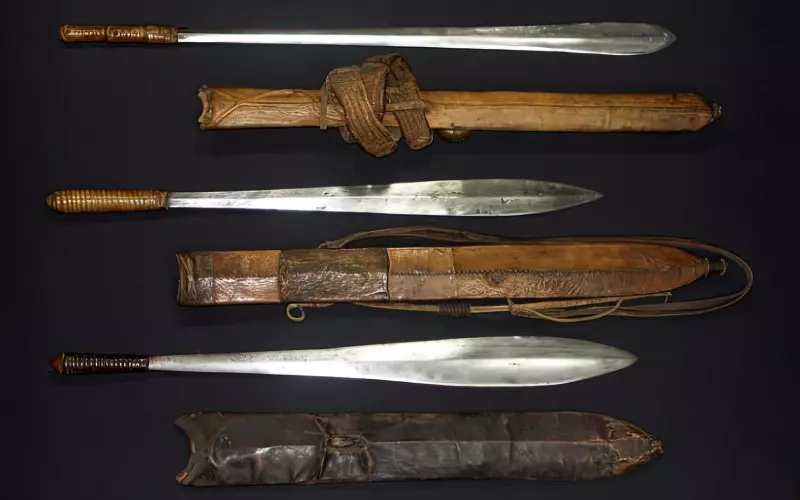
In my view, the battle scenes left something to be desired as they lacked the intensity I was hoping for. There seemed to be a missed opportunity to dedicate more time to fully developing and immersing the audience in those moments. On another note, I can't help but bring up a minor detail that caught my attention—the weaponry employed.
During the medieval era in Yoruba land, the Ídà (sword) held the esteemed position of being the primary military instrument. Given the remarkable skills of Yoruba blacksmiths, who had mastered iron ore extraction and smelting well before 800 A.D., the omission of this weapon of choice felt like an oversight that should have been highlighted.
Furthermore, facial markings in Yoruba culture hold profound significance beyond aesthetics, functioning as a national identifier of the place of origin and familial lineage. The array of facial marks adorning characters' faces in Jagun Jagun fails to create a genuine sense of people, places, or historical context. Instead, it underscores the film's struggle to establish authenticity in these aspects.
In conclusion, Jagun Jagun's shortcomings in world-building, narrative coherence, visual effects, and cultural representation hinder its potential impact. The film's attempt to convey a rich tapestry of culture and history falls short, leaving both critical and knowledgeable audiences yearning for a more immersive and accurate portrayal.
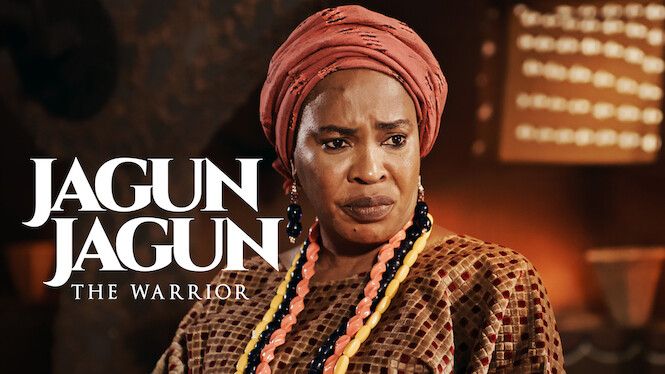
However, evident by its impressive reception on its Netflix weekend opening, Jagun Jagun has struck a chord with audiences and critics alike. The film's production values, performances, and narrative have garnered praise, with particular recognition for exploring the virtues of persistence and aspiration.
Gbotija 's unwavering pursuit of greatness, despite daunting odds, serves as a beacon of hope for young individuals facing their trials and tribulations. Jagun Jagun is a masterfully crafted and enthralling cinematic experience, bearing a potent moral message. It is an indispensable watch for fans of Nigerian cinema and enthusiasts of action-packed films.

If you enjoyed this article, kindly subscribe to our weekly newsletter: "News From Around The Motherland," to stay updated on opinion articles and in-depth explorations of diverse African subjects. Thanks for reading.


